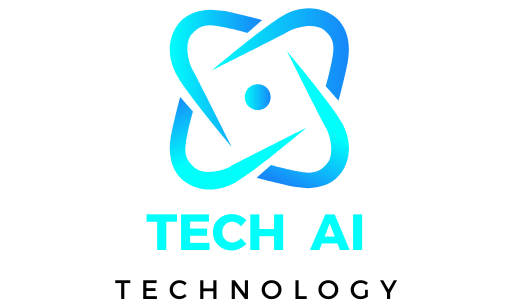Breaking into the information technology jobs entry level market in 2025 is easier than ever, thanks to the growing demand for tech talent across industries. Companies are actively hiring for roles in IT support, cybersecurity, cloud computing, and software development, even if you have little to no experience.
With the rise of AI driven automation and remote work opportunities, entry level IT jobs offer strong career growth, competitive salaries, and hands on learning. Whether you’re a recent graduate or making a career switch, this guide will help you explore the best IT jobs for beginners, required skills, and how to land your first job in the evolving tech landscape.
Best Entry Level Information Technology Jobs in 2025: A Complete Guide
Starting a career in information technology jobs entry level is easier than ever in 2025. With the rise of AI, cloud computing, and cybersecurity, companies are hiring IT professionals with little to no experience. Entry level IT jobs offer high salaries, remote work opportunities, and career growth.
Popular roles include IT support, network administration, and software development. Whether you’re a beginner or switching careers, this guide covers the best IT jobs, required skills, and how to get hired.
Why Choose an Entry Level IT Job in 2025?
The IT industry is growing rapidly, creating a massive demand for tech professionals. With companies adopting automation, cybersecurity measures, and cloud computing, even entry level positions offer high salaries and long term job security.
Many IT jobs no longer require a traditional degree; instead, employers look for certifications, problem solving skills, and hands on experience. If you’re looking for a high paying, future proof career, an entry level IT job is a great place to start.
Best Entry Level IT Jobs in 2025
1. IT Support Specialist
This role is perfect for beginners looking to break into tech. IT support specialists troubleshoot hardware, software, and network issues for businesses and customers. They work in help desks, tech support teams, and managed IT services. Certifications like CompTIA A+ and strong communication skills can boost your chances of landing a job.
2. Network Administrator
Network administrators manage and maintain computer networks, servers, and firewalls. As companies rely on secure and stable internet connections, this job is in high demand. Entry level candidates can start as network technicians or system administrators by earning certifications like Cisco’s CCNA.
3. Cybersecurity Analyst
With increasing cyber threats, businesses are hiring cybersecurity professionals to protect sensitive data. Entry level roles include security analysts and SOC analysts, who monitor and prevent cyberattacks. Certifications like CompTIA Security+ and Certified Ethical Hacker (CEH) can help you enter this field.
4. Cloud Support Engineer
As cloud services like AWS, Microsoft Azure, and Google Cloud dominate IT, cloud support engineers assist companies in managing cloud based infrastructure. Basic knowledge of Linux, cloud computing, and networking is essential. Certifications like AWS Certified Cloud Practitioner can help you get started.
5. Software Developer
Software development remains one of the highest paying IT careers. Beginners can start as junior developers by learning Python, JavaScript, or Java. Companies hire entry level programmers to develop web apps, mobile apps, and enterprise software. Bootcamps, coding certifications, and GitHub projects improve hiring chances.
Skills Needed for Entry Level IT Jobs
To succeed in entry level IT jobs, candidates should develop:
- Technical Skills: Knowledge of operating systems, databases, and coding languages like Python and JavaScript.
- Problem Solving Abilities: Troubleshooting software and hardware issues is a key part of IT jobs.
- Certifications: Earning CompTIA, Cisco, AWS, and Microsoft certifications increases job opportunities.
- Communication Skills: IT professionals need to explain technical solutions in a clear and simple way.
- Continuous Learning: The IT industry evolves rapidly, so staying updated with latest technologies is crucial.
How to Get an Entry Level IT Job Without Experience?
Getting into IT without experience is possible by following these steps:
- Earn Certifications: Start with beginner friendly certifications like CompTIA A+, Google IT Support, or AWS Cloud Practitioner.
- Gain Hands On Experience: Build home labs, contribute to open source projects, or freelance.
- Create an IT Focused Resume: Highlight technical skills, problem solving abilities, and certifications.
- Apply for Internships & Apprenticeships: Many companies offer paid IT internships to train beginners.
- Network with IT Professionals: Join LinkedIn, tech forums, and local IT communities to connect with hiring managers.
Why Choose an Entry Level IT Job in 2025?

High Demand for IT Professionals
The demand for IT professionals is growing rapidly due to digital transformation. Companies are investing in cloud computing, cybersecurity, and AI powered solutions. Businesses need skilled IT workers to manage networks, data, and automation. As technology evolves, entry level IT roles will remain essential.
No Degree Required Skills Matter More
Many IT jobs in 2025 won’t require a college degree. Employers prioritize certifications, coding skills, and hands on experience. Platforms like Coursera, Udemy, and Google IT Support help beginners gain relevant skills. Fields like software development, cybersecurity, and IT support welcome self taught professionals.
Competitive Salaries and Career Growth
Entry level IT jobs offer attractive salaries compared to other industries. Roles like IT support specialist, junior developer, and network technician provide stable income. As experience grows, professionals can advance to higher paying roles like cloud engineer or AI specialist. Continuous learning boosts career progression.
Remote Work and Freelancing Opportunities
Tech jobs provide flexible work options, including remote positions and freelancing. Many startups and global companies hire IT professionals worldwide. Freelance developers, cybersecurity analysts, and IT consultants can earn well from home. This flexibility makes IT an excellent career choice in 2025.
Top Entry Level IT Jobs in 2025
Technology is evolving rapidly, and demand for IT professionals continues to grow. If you’re starting a tech career, these top entry level IT jobs in 2025 offer great opportunities.
1. IT Support Specialist
Role:
IT Support Specialists troubleshoot software, hardware, and network issues. They assist employees and customers with technical problems.
Skills:
- Customer service
- Troubleshooting skills
- Basic networking knowledge
Certifications:
- CompTIA A+
- Google IT Support Certificate
2. Help Desk Technician
Role:
Help Desk Technicians provide first line technical support for hardware and software issues. They handle customer queries and escalate complex problems.
Skills:
- Windows, macOS, Linux basics
- Strong communication skills
- Remote troubleshooting
Certifications:
- ITIL Foundation
- CompTIA A+
3. Network Administrator
Role:
Network Administrators manage routers, switches, and network security. They ensure smooth network operations and troubleshoot connectivity issues.
Skills:
- Networking protocols (TCP/IP, DNS, VPNs)
- Cloud networking (AWS, Azure, Google Cloud)
- Troubleshooting and security measures
Certifications:
- Cisco CCNA
- CompTIA Network+
4. Cybersecurity Analyst
Role:
Cybersecurity Analysts protect company data and IT infrastructure. They monitor security systems and respond to threats.
Skills:
- Threat detection and response
- Security tools (firewalls, SIEM, IDS/IPS)
- Ethical hacking and penetration testing
Certifications:
- CompTIA Security+
- Certified Ethical Hacker (CEH)
5. Cloud Support Engineer
Role:
Cloud Support Engineers assist businesses in managing cloud computing platforms. They optimize performance and troubleshoot cloud services.
Skills:
- AWS, Azure, Google Cloud fundamentals
- Linux administration and scripting
- Cloud security best practices
Certifications:
- AWS Cloud Practitioner
- Microsoft Azure Fundamentals
6. Software Developer (Entry Level)
Role:
Entry level Software Developers create applications, websites, and enterprise software. They collaborate with teams to build efficient solutions.
Skills:
- Coding in Python, JavaScript, Java, or C#
- Web development frameworks (React, Node.js)
- Version control (Git, GitHub)
Certifications:
- AWS Certified Developer
- Microsoft Certified: Azure Developer
7. Data Analyst
Role:
Data Analysts examine business data to extract insights and guide decision making. They create visual reports for stakeholders.
Skills:
- Data analysis tools: Excel, SQL, Python, Tableau, Power BI
- Data visualization techniques
- Machine learning basics
Certifications:
- Google Data Analytics Certificate
- Microsoft Power BI Certification
4 Essential Skills Needed for Entry Level IT Jobs in 2025
Breaking into the IT industry requires a mix of technical expertise, coding knowledge, problem solving skills, and strong communication. Here’s what you need to succeed in an entry level IT role.
1. Technical Skills
Understanding operating systems like Windows, Linux, and macOS is crucial. Networking basics, including TCP/IP, DNS, and VPNs, are essential for troubleshooting. Security fundamentals like firewalls, encryption, and endpoint protection help prevent cyber threats. Cloud computing knowledge (AWS, Azure, Google Cloud) is a plus.
2. Coding & Scripting
Programming skills improve IT efficiency. Learn Python for automation, JavaScript for web applications, and SQL for database management. Bash scripting in Linux simplifies system tasks. Writing clean, structured code is valuable in IT support and DevOps roles.
3. Problem Solving Skills
IT professionals must troubleshoot system crashes, software bugs, and network failures. Strong critical thinking helps diagnose and fix issues quickly. Understanding error logs, debugging tools, and system monitoring is necessary. Hands on experience boosts confidence in real world IT problems.
4. Soft Skills
Effective communication helps explain technical issues to non tech users. Teamwork is vital in collaborative IT environments. Adaptability is crucial with evolving technology trends like AI driven automation, cybersecurity risks, and cloud solutions.
How to Get an Entry Level IT Job Without Experience (2025 Guide)

Breaking into the IT industry without prior experience is possible with the right approach. Many beginners land their first job by gaining certifications, building a portfolio, and networking effectively. Follow these steps to kickstart your IT career in 2025.
1. Get Certified Top IT Certifications for Beginners
Certifications validate your skills and make you stand out. The best IT certifications for beginners in 2025 include:
- CompTIA A+: Ideal for technical support and IT fundamentals.
- Google IT Support Professional Certificate: Covers troubleshooting and customer support.
- AWS Certified Cloud Practitioner: Great for cloud computing beginners.
- Microsoft Certified: Azure Fundamentals: Introduces cloud services and Microsoft technologies.
- Cisco Certified Technician (CCT): Essential for networking basics.
2. Build a Portfolio Create Projects Showcasing Your Skills
A strong portfolio demonstrates your technical abilities. Include:
- Personal projects (e.g., a website, app, or database management system).
- Open source contributions on GitHub.
- Hands on labs from online courses.
- Automation scripts or troubleshooting examples.
Use platforms like GitHub, Behance (for UI/UX designers), and CodePen to display your work.
3. Gain Practical Experience Freelancing, Internships, Personal Projects
Hands on experience helps bridge the gap between learning and real world IT jobs. Try:
- Freelancing on platforms like Upwork and Fiverr.
- Enrolling in tech internships (even unpaid ones offer valuable exposure).
- Working on open source projects to gain coding and collaboration experience.
- Volunteering for IT related work at nonprofits or small businesses.
4. Network with IT Professionals LinkedIn, Tech Meetups, Online Communities
Networking opens doors to job opportunities. Connect with industry professionals through:
- LinkedIn: Engage in IT related discussions and follow recruiters.
- Tech meetups: Attend local or virtual networking events.
- Online communities: Join forums like Reddit r/ITCareer Questions, Stack Overflow, and Discord servers.
- Mentorship programs: Seek guidance from experienced IT professionals.
5. Tailor Your Resume & Cover Letter Showcase Skills, Projects, and Certifications
A well crafted resume highlights your strengths. Follow these tips:
- Emphasize technical skills like Python, Linux, cybersecurity, and troubleshooting.
- List relevant certifications.
- Include personal and freelance projects.
- Use action words: “Developed a web application,” “Resolved technical issues.”
- Keep it concise one page for entry level positions.
6. Prepare for IT Job Interviews Common Questions and Best Answers
Interview preparation increases your chances of success. Expect questions like:
- “What IT skills do you have?” Mention your certifications and projects.
- “How do you troubleshoot a slow computer?” Explain step by step diagnostic methods.
- “Why do you want to work in IT?” Showcase passion and problem solving abilities.
- “Describe a time you fixed a technical issue.” Use real examples from your projects or training.
Practice with mock interviews and refine your answers to sound confident.
6 Best IT Certifications for Beginners in 2025
Starting an IT career in 2025? Getting certified can boost your skills and job opportunities. These six beginner friendly certifications cover essential tech skills in networking, cybersecurity, and cloud computing.
1. CompTIA A+ (IT Fundamentals, Hardware, Software)
CompTIA A+ is the best IT certification for beginners. It covers essential computer hardware, software troubleshooting, and IT support skills. Employers value it for entry level IT jobs, including technical support and help desk roles. This certification validates your ability to handle real world IT problems, making it a great starting point.
2. Cisco CCNA (Networking Basics)
The Cisco Certified Network Associate (CCNA) is perfect for those interested in networking. It covers networking fundamentals, IP connectivity, security basics, and automation. CCNA certified professionals are in demand for network administration and IT infrastructure roles. Learning networking protocols like TCP/IP and routing can open doors to advanced IT careers.
3. AWS Certified Cloud Practitioner (Cloud Computing Basics)
Cloud computing dominates IT in 2025. The AWS Cloud Practitioner certification introduces cloud concepts, pricing models, and security principles. Amazon Web Services (AWS) powers many businesses, and this certification is ideal for those new to cloud technology. It helps beginners start careers in cloud administration and IT infrastructure.
4. Google IT Support Professional Certificate
This certification, offered by Google, is designed for complete beginners. It covers troubleshooting, networking, system administration, and cybersecurity basics. Google’s IT Support program prepares you for real world IT roles and connects you with top employers. It’s a great choice for launching a career in IT support or technical assistance.
5. CompTIA Security+ (Cybersecurity Fundamentals)
Cybersecurity is a top priority in 2025. The CompTIA Security+ certification covers threat detection, risk management, and network security. It’s a must have for entry level cybersecurity roles. Businesses need skilled professionals to protect their data, making Security+ a valuable credential.
6. Microsoft Azure Fundamentals (Cloud Computing Basics)
Microsoft Azure is a leading cloud platform. The Azure Fundamentals certification introduces cloud computing, Azure services, and security basics. It’s perfect for beginners looking to enter cloud computing or IT infrastructure roles. As businesses shift to cloud solutions, Azure expertise is in high demand.
Why Get Certified in 2025?
- IT certifications boost job opportunities and salary potential.
- Employers prefer candidates with verified technical skills.
- Certifications provide hands on knowledge for real world IT challenges.
- They help you specialize in networking, cloud computing, or cybersecurity.
Best Places to Find Entry Level IT Jobs in 2025
The IT job market in 2025 is competitive but full of opportunities. If you’re looking for an entry level IT position, knowing where to search can make all the difference. Here are the best platforms to land your first IT job.
1. Job Boards: Indeed, LinkedIn, Glassdoor, Dice
Top job boards list thousands of IT job openings daily. Indeed, LinkedIn, Glassdoor, and Dice allow you to filter jobs by skills, experience, and salary. Set up job alerts and optimize your profile for better visibility.
2. Freelancing Platforms: Upwork, Fiverr, Freelancer
Freelance work is a great way to gain real world IT experience. Upwork, Fiverr, and Freelancer offer gigs for web development, cybersecurity, IT support, and software testing. Build a strong portfolio to attract clients.
3. Company Career Pages: Google, Microsoft, Amazon, IBM, Startups
Many tech companies post entry level jobs directly on their websites. Check the career pages of Google, Microsoft, Amazon, IBM, and top startups. Applying early increases your chances of getting noticed.
4. Tech Communities & Networking: Reddit, Discord, LinkedIn Groups
Networking can unlock hidden job opportunities. Join Reddit IT forums, Discord tech groups, and LinkedIn communities. Engage in discussions, ask for referrals, and connect with industry professionals.
8 Remote Entry Level IT Jobs: Work from Anywhere
The Growth of Remote IT Jobs in 2025
Remote IT jobs are growing fast, offering flexible work options worldwide. With cloud computing, AI, and cybersecurity in high demand, companies now hire remote IT professionals more than ever. Many entry level roles require no prior experience, making it easier to start an IT career. Freelancing and contract based jobs are also expanding, giving professionals more opportunities to work independently.
Best Remote Friendly IT Roles
These IT jobs are beginner friendly and perfect for remote work:
1. Help Desk Technician
- Provides technical support to customers.
- Requires basic troubleshooting and communication skills.
- Entry level certifications like CompTIA A+ are helpful.
2. IT Support Specialist
- Assists users with hardware and software issues.
- Commonly needed in tech startups and corporations.
- No degree required, just strong problem solving skills.
3. Web Developer
- Builds and maintains websites using HTML, CSS, and JavaScript.
- Platforms like WordPress and Shopify offer beginner friendly work.
- Freelancing opportunities are available worldwide.
4. Cybersecurity Analyst
- Protects networks from cyber threats.
- Entry level roles include security monitoring and risk analysis.
- Certifications like Security+ or Google Cybersecurity help beginners.
5. Cloud Support Associate
- Works with cloud platforms like AWS, Azure, and Google Cloud.
- Entry level jobs focus on troubleshooting and system administration.
- Cloud certifications increase job prospects.
6. Data Entry Specialist
- Manages and processes data for businesses.
- Requires attention to detail and fast typing skills.
- Great starting point for IT careers with no experience.
7. Software Tester (QA Tester)
- Identifies bugs and improves software performance.
- Requires analytical thinking and attention to detail.
- Many companies hire remote testers for web and mobile apps.
8. Technical Writer
- Creates user manuals, guides, and IT documentation.
- Requires clear writing skills and basic tech knowledge.
- High demand in SaaS, cybersecurity, and cloud computing.
How to Apply for Remote IT Jobs with No Experience
Breaking into IT without experience is possible. Follow these steps:
- Learn Essential Skills: Take free courses on platforms like Coursera, Udemy, or LinkedIn Learning.
- Earn Certifications: Get entry level IT certifications (CompTIA, Google IT Support, AWS Cloud Practitioner).
- Build a Portfolio: Showcase projects on GitHub or create a simple website.
- Join Online Job Platforms: Use LinkedIn, Upwork, and Fiverr to find freelance work.
- Apply for Internships: Many remote internships offer hands on experience.
- Network with IT Professionals: Join tech forums, LinkedIn groups, and Discord communities.
- Tailor Your Resume: Highlight transferable skills, problem solving abilities, and relevant certifications.
- Prepare for Interviews: Practice common IT job interview questions to boost confidence.
Future of Entry Level IT Jobs (2025 & Beyond)

AI and Automation’s Impact on IT Job Roles
AI and automation are transforming entry level IT jobs. Routine tasks like system monitoring, data entry, and basic troubleshooting are now automated. IT professionals must shift toward roles requiring critical thinking, problem solving, and AI management.
Companies seek tech talent skilled in AI driven tools, cybersecurity, and IT infrastructure automation. Adaptability is crucial to staying relevant in the evolving job market.
Emerging IT Job Trends
New IT fields are creating fresh job opportunities. Blockchain is driving demand for security analysts, smart contract developers, and decentralized application engineers. Edge computing is revolutionizing real time data processing, requiring skilled cloud engineers and network architects.
Quantum computing is opening doors for quantum software developers, cryptography experts, and research scientists. These fields are reshaping IT career paths in 2025 and beyond.
Upskilling to Stay Relevant
Continuous learning is key to thriving in the IT industry. Certifications in cloud computing, AI, cybersecurity, and data science increase job prospects. Coding skills in Python, JavaScript, and Rust are valuable. Hands on experience through internships, boot camps, and online courses boosts employability. Employers prioritize adaptable professionals who embrace lifelong learning and stay ahead of tech advancements.
FAQs:
Q1. What is an entry level IT job?
An entry level IT job is a beginner position in the tech industry that requires little to no prior experience. These roles focus on technical support, networking, cybersecurity, software development, and data analysis. Many companies hire candidates with certifications or self taught skills.
Q2. What IT jobs are best for beginners in 2025?
Some of the best entry level IT jobs in 2025 include:
- IT Support Specialist
- Help Desk Technician
- Network Administrator
- Cybersecurity Analyst
- Cloud Support Engineer
- Software Developer
- Data Analyst
Q3. Do I need a degree for an entry level IT job?
No, a degree is not always required. Many employers focus on skills, certifications, and hands on experience. Popular IT certifications like CompTIA A+, Google IT Support, AWS Cloud Practitioner, and Cisco CCNA can help land a job without a formal degree.
Q4. What skills do I need for an entry level IT job?
Essential skills include:
- Technical skills: Operating systems (Windows, Linux), networking, cybersecurity basics.
- Coding & scripting: Python, JavaScript, SQL.
- Soft skills: Communication, problem solving, teamwork.
Q5. How can I get an IT job with no experience?
- Earn IT certifications (CompTIA A+, Google IT Support, AWS, Cisco CCNA).
- Build a portfolio with personal projects and GitHub contributions.
- Gain experience through internships, freelancing, or volunteer work.
- Apply for remote IT jobs or entry level tech apprenticeships.
- Network on LinkedIn, Reddit, and tech communities.
Q6. What are the highest paying entry level IT jobs?
While salaries vary, some high paying beginner IT jobs in 2025 include:
- Cybersecurity Analyst ($60K to $90K per year)
- Software Developer ($65K to $100K per year)
- Cloud Support Engineer ($60K to $85K per year)
- Data Analyst ($55K to $85K per year)
Q7. Where can I find entry level IT jobs?
Top job platforms to find IT jobs include:
- Indeed, LinkedIn, Glassdoor, Dice (for IT specific jobs)
- Freelancing sites: Upwork, Fiverr, Freelancer
- Company career pages: Google, Microsoft, Amazon, IBM
- Networking: Attend tech meetups, LinkedIn groups, and Reddit IT job forums
Q8. Are remote entry level IT jobs available in 2025?
Yes! Remote IT jobs are increasing, especially in fields like:
- Cloud computing
- Software development
- Cybersecurity
- IT support
- Data analysis
Many companies hire remote IT professionals globally, offering flexible work opportunities.
Q9. How long does it take to get an entry level IT job?
It depends on your learning pace and background. If you start from scratch, it can take 3 to 6 months with full time learning or 6 to 12 months if learning part time. Getting a certification, hands on experience, and networking can speed up the process.
Q10. What is the future of entry level IT jobs?
Entry level IT jobs will continue growing due to AI, automation, and cloud computing. New job roles in cybersecurity, blockchain, and AI support will emerge. Staying updated with skills, certifications, and industry trends will ensure long term career success.
Conclusion:
Starting a career in entry level IT jobs in 2025 is easier than ever with the right skills, certifications, and hands on experience. Whether you choose IT support, cybersecurity, cloud computing, or software development, there are endless opportunities for growth.
Stay updated, build a strong portfolio, and network with industry professionals to land your first job. The tech industry is evolving fast take action now and start your IT journey today! 🚀

